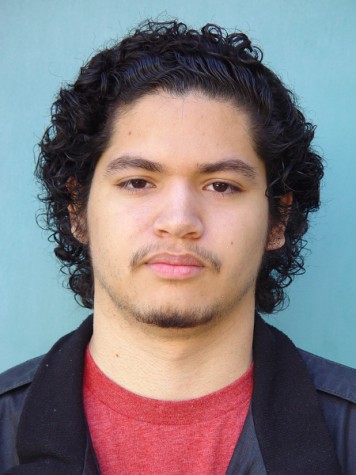“Star Trek” and “Star Wars” themes such as religion and identity were logically discussed in Kreider Hall featuring Western Nevada College Professor Daryl Frazetti, who put a forceful emphasis on the anthropology of the two franchises.
Frazetti, an archaeology, anthropology and biology professor, talked about how the two series function as cultural mirrors and cultural teachers as he examined the subculture of fandom through music and art.
“‘Star Trek’ and ‘Star Wars’ tell us the same kinds of things that anthropology does,” Frazetti said. “A lot of what ‘Star Trek’ and ‘Star Wars’ have been about are our cultural past stories, or our present conditions being reflected back at us and explaining us through these forms of media.”
The movies explain the paths that humans take depending on the choices made and how positive changes can be implemented.
“The message in ‘Star Wars’ beyond the myth is that there are all these cultural lessons that are in there for us in terms of how we can use this to have an impact on our society,” Frazetti said.
The discussion focused on different characters from each movie series to answer questions concerning individuality, politics and what it means to be a human. Spock and Luke Skywalker were chosen to represent individualism.
“Spock wrestles a lot with his identity,” Frazetti said. “He decides to join the Star Fleet and hang out with the humans and he takes himself on this wild adventure of trying to figure out how he can [utilize] his ethnic diversity in a positive way.”
Other characters, such as Cisco from “Star Trek” and Obi-Wan Kenobi from “Star Wars,” represent religion.
“There is a conflict in our own society between secularism with science and religion of faith,” Frazetti said. “And I see it when I teach my courses . you’ve got to get around getting students interested into the discussion of the matter at hand [religion]. Occasionally, evoking a little ‘Star Trek’ and ‘Star Wars’ minimizes biases.”
Frazetti stated that he enjoys using the “Lord of the Rings” series to specifically discuss Christianity.
The character Data symbolizes what it means to be human, while Anakin, Yoda and Q taught different lessons to society.
“Star Trek” is used to explain mythology, most notably in the episode “Tapestry,” where Q, who appears in “Star Trek: The Next Generation,” “Star Trek: Deep Space Nine” and “Star Trek: Voyager,” comes back as God.
“I think we can agree that the mythological components of each one are the reason they’re still around,” Frazetti said. “A lot of fandom truly believes that Star Trek is indeed a blueprint for the future.”
At the end of the lecture, Frazetti showcased some technological inventions created from fans of the two franchises, such as real life R2-D2s and the Klingon keyboard (for serious Trekkies only).
Anthropology student John Ostermiller, who assisted Frazetti in the presentation, said he met Frazetti.
“In Wondercon in San Francisco when he was giving a talk on just ‘Star Trek’ and I just happened to really kind of click with what he had to say.”
“Do we still need ‘Star Trek’ and ‘Star Wars’?” Frazetti asked the audience. “Are there [still] cultural lessons that we can gain from them?” He left the audience with that question to ponder at the lecture’s conclusion.
Frazetti will speak at LOSCON (a fan-run science fiction convention) in November at the LAX Marriot. To contact Frazetti, leave an email at [email protected].
The next science lecture is called “From the Beginning to the End … and Everything in Between (System Error: Please Reinstall the Universe and Reboot)” and will be held on Oct. 27 at noon by Poghos Kazarian in SB 243. It will be free and open to the public.

